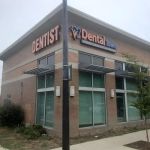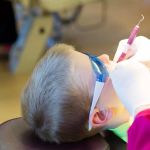Understanding Jaw Pain Related to Teeth
Jaw pain related to teeth is a common discomfort many individuals experience, often affecting daily activities such as eating, speaking, and even sleeping. This pain can stem from various dental issues, including tooth infections, misaligned teeth, or temporomandibular joint (TMJ) disorders. Understanding the underlying causes is essential for effective treatment and relief.
Common Causes of Jaw Pain Linked to Dental Issues
1. Tooth Decay and Infection
One of the primary reasons for jaw pain is tooth decay leading to infection or abscess. The infection can spread to the surrounding jawbone, causing severe discomfort and swelling. Early diagnosis and treatment such as root canals or antibiotics are crucial to prevent worsening symptoms.
2. Impacted or Wisdom Teeth
Wisdom teeth that fail to erupt properly can press against adjacent teeth or jawbone, causing pain and inflammation. In some cases, surgical extraction is necessary to alleviate the pain and avoid complications.
3. Temporomandibular Joint Disorders (TMJ)
TMJ disorders affect the joint connecting the jawbone to the skull, resulting in pain, clicking sounds, and restricted movement. Often related to teeth grinding or misalignment, TMJ can be treated with dental appliances, physical therapy, or in rare cases, surgery.
Non-Surgical Treatments for Jaw Pain
1. Pain Management Techniques
Over-the-counter pain relievers such as ibuprofen help reduce inflammation and pain. Applying warm compresses or cold packs can soothe the affected area. Maintaining a soft diet to reduce strain on the jaw is also beneficial during flare-ups.
2. Dental Interventions
For pain caused by cavities, infections, or tooth misalignment, visiting a dentist is essential. Treatments may include fillings, root canals, orthodontics, or fitting custom mouthguards to prevent grinding. Regular dental check-ups can identify problems early and prevent chronic jaw pain.
3. Physical Therapy and Exercises
Specialized exercises can improve jaw mobility and reduce muscle tension. Physical therapy may include massage, ultrasound, or jaw stretches tailored to individual needs. These therapies have proven effective in managing TMJ-related jaw pain without invasive procedures.
When to Seek Immediate Medical Attention
If jaw pain is accompanied by severe swelling, fever, difficulty breathing or swallowing, or persistent numbness, immediate professional care is necessary. These symptoms could indicate serious infections or other medical emergencies requiring prompt intervention.
Real-Life Example: Overcoming Jaw Pain Without Surgery
Mark, a 35-year-old software engineer, experienced chronic jaw pain caused by teeth grinding at night. Instead of opting for surgery, his dentist recommended a custom nightguard and guided physical therapy. Within weeks, Mark noticed significant improvement, demonstrating the effectiveness of non-surgical treatments for jaw pain related to teeth.
Preventive Measures to Avoid Jaw Pain
- Maintain excellent oral hygiene to prevent infections.
- Avoid excessive chewing of hard foods or gum.
- Practice stress-relief techniques to minimize teeth grinding.
- Schedule regular dental visits for early detection.
Where to Find Expert Help and Products
For professional guidance and tailored treatments on how to treat jaw pain related to teeth, visit Dentistry Toothtruth. We offer expert consultations and the most suitable dental products to support your oral health journey.







 Dr. Aaron Ivanhoe5.0 (6 review)
Dr. Aaron Ivanhoe5.0 (6 review) Bloomington Family Dental4.0 (298 review)
Bloomington Family Dental4.0 (298 review) Bryn Mawr Periodontal Associates, Ltd.4.0 (277 review)
Bryn Mawr Periodontal Associates, Ltd.4.0 (277 review) Virginia Family Dentistry Mechanicsville4.0 (808 review)
Virginia Family Dentistry Mechanicsville4.0 (808 review) Dental Town-Pulaski0.0 (0 review)
Dental Town-Pulaski0.0 (0 review) Smile Academy Pediatric Dentistry4.0 (48 review)
Smile Academy Pediatric Dentistry4.0 (48 review) The Importance of Oral Health Education During Pregnancy for a Healthy Pregnancy
The Importance of Oral Health Education During Pregnancy for a Healthy Pregnancy Best Tips for Brushing Your Teeth Properly for Healthy Gums: Essential Techniques for Oral Health
Best Tips for Brushing Your Teeth Properly for Healthy Gums: Essential Techniques for Oral Health Why Skipping Dental Checkups Can Lead to Bigger Oral Health Problems
Why Skipping Dental Checkups Can Lead to Bigger Oral Health Problems Advantages of Porcelain Dental Restorations
Advantages of Porcelain Dental Restorations How Can Diabetes Cause Tooth and Gum Problems? Preventing and Managing Oral Health Issues
How Can Diabetes Cause Tooth and Gum Problems? Preventing and Managing Oral Health Issues Healthy Habits for Promoting Good Oral Health and Hygiene: Tips for a Healthy Smile
Healthy Habits for Promoting Good Oral Health and Hygiene: Tips for a Healthy Smile